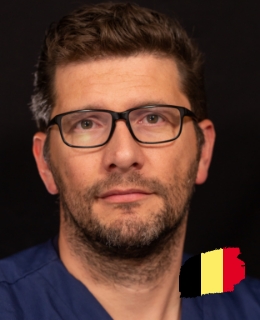The dyspnoeic patient
Course Description
There are 3 major problems encountered regarding the respiratory system:
- Hypoxemia
- Hypercapnia
- Excessive respiratory effort
Manage dyspnoeic patients effectively!
Gain valuable tips on achieving optimal oxygenation and ventilation without excessive respiratory effort.
Learn to differentiate between inspiratory and expiratory dyspnoea due to upper and lower respiratory disease respectively for accurate diagnosis.
Utilize auscultation and POCUS for rapid assessment. Create a calming environment and administer appropriate oxygen therapy. Consider mechanical ventilation for severe cases, or try high-flow oxygen for hypoxemic patients. Take action now and provide the best care for your patients!
Course Content
- From Worrisome to Rewarding: Navigating the Challenges of Dyspnoeic Patients.
- Importance of optimal oxygenation and ventilation in treating patients with excessive respiratory efforts.
- Understanding Breathing Patterns: Key Insights for Assessing Dyspnoeic Patients.
- Bold treatment approaches for Dyspnoeic patients.
- POCUS: Rapid Thoracic Assessment for Veterinary Diagnosis for Dyspnoeic patients- The PLUS protocol
- More treatment options for respiratory care: Monitoring with Blood Gas Analysis- Mechanical Ventilation - Intense Oxygen Therapy
Course Content
Kris Gommeren
⦁ Kris Gommeren graduated and performed an internship and a residency in internal medicine at Ghent University, where he helped in the development of the ECC-service and blood bank.
⦁ He worked briefly in a referral practice in the Netherlands, before obtaining his diplomacy in internal medicine and moving to Liège University.
⦁ Since 2008 he is in charge of the ECC-service at Liège University, where he finished a PhD on systemic inflammation and the the cardiovascular system.
⦁ He became a diplomate in emergency and critical care, although he remains actively involved in the internship and resident training program in internal medicine.
⦁ Besides his work in a university setting, he is a consultant for an international veterinary company for the development of emergency and critical care facilities and the training of emergency and critical care personnel.
⦁ Over the past years Kris has become involved in the EVECCS society, of which he actually is past-president.
